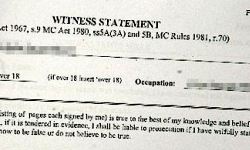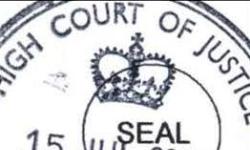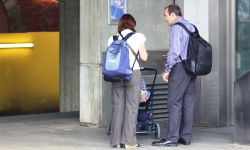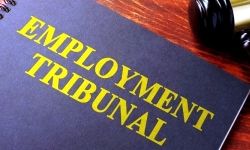
Answers Investigation are often required to interview witnesses, as a part of their own investigations and under solicitors instructions. In accordance with good practice, we use the PEACE framework for interviewing, interviewers having undergone internal training

The gathering of information from a well-prepared victim or witness interview will contribute significantly to any investigation. An effective interview of a suspect will commit them to an account of events that may include an admission or may provide information leading to further witnesses of benefit to an investigation. Conversely, failure to professionally undertake interviews can have adverse consequences in terms of failure to adhere to legislation, loss of critical material, lack of credibility and loss of confidence. For this reason our Investigators adopt the PEACE framework detailed below
In 1991 the Home Office set up a steering group to investigate interviewing techniques. This group developed the PEACE model. PEACE stands for: Planning and Preparation, Engage and Explain, Account, Closure and Evaluation. These stages are described in more detail below:
Planning involves the thought processes in getting ready to interview; and Preparation involves getting the location, the environment and the administration ready. The planning process involves gathering information so as to allow the interviewer to remain in control of the interview, to ensure that it goes in the right direction and that sufficient time is available . The maxim - "Proper preparation prevents poor performance" or other colloquial versions are very relevant. In addition, the interviewer should understand the purpose of the interview, the previous background circumstances, and have a profile of the interviewee. Not every interview is well planned but the more significant the issue, the more likely time nay be invested in preparation. Preparation may involve simply defining the purpose of the interview but it can also involve the set up of the interview space. An assessment of available prior knowledge might also be carried out in advance in order to understand what information is required. Understanding what is required may go some way towards understanding how it can be obtained. The mechanics of the interview space may involve seating, logistics and venue, however they will also involve making any exhibits, if relevant, available for examination during questioning, Good interviewers are investigative whereas poor investigators are merely interviewers. Unless preparation takes place an interviewer may overlook important evidence or miss inconsistencies in the interview information. Unnecessary breaks may then be taken in order to ratify forthcoming information
The opening phase of an interview can be crucial to the interviewer's success. If the interviewer can engage the interviewee for a few minutes, this can then "warm up" the interviewee and assist that person to engage with the interviewer in a relaxed relationship which may then be continued throughout the interview. Engaging the interviewee is sometimes described as the Rapport stage of the interview. Courtesy, politeness, and understanding cost nothing to the interviewer but can make all the difference between his/her success and failure as an interviewer. Successful interviewers may take time to find out what motivates the interviewees. Once these drivers are understood then it may be possible to take steps to use them. In addition, the formal it ies of the interview may need explanat ion. The tape recording, and other procedures, once understood, can help the interviewee to empathise with the interviewer. If this happens then the interviewer will have much greater success. The format of the interview may then be explained - in order to demystify the process and to give the interviewee the impression that he is not going to be tricked. This sense of security may later be challenged by an interviewer who wishes to ask supplementary questions, or to clarify an earlier account
The interviewee may be asked to comment on matters which have not already been described in the interview or to repeat an earlier explanation in their own words. The interviewer is likely to use the interviewee's words and repeat them back to him where he or she is checking for a correct interpretation Frequently interviewers will take a great deal of time and put themselves out in order to show consideration for the interviewee. Frequently the interviewee will be asked if he wants a drink or to use the toilet or how he or she wants to be addressed in the interview. Successful interviewers often ask whether there are any time restraints on the interviewee as these concerns may be used to increase the interviewee's tension later on
The Interviewer will set the scene by saying that the interview is very important and that everything the interviewee says is important. As a result they should not leave anything out, even if they believe it is of no relevance. The interviewee may even be given the impression that they will have to work hard because they have all the information. This creates the impression that there is something that the interviewee needs to say to the interviewer
At any stage of the interview, in order to ensure fairness, the interviewee may be encouraged to ask a question of the interviewer if there is something which they do not understand, if there is something they do not know or if they do not understand the interviewer
It is unlikely that an interviewee will be encouraged to ask a question for clarification where there is more than one possible meaning for a question, or ask the interviewer to explain something which was inappropriate or leading or to say that they do not feel that it is appropriate for them to answer a question, or refuse to speculate or give their opinion as to hypothetical circumstances
Once this engagement stage has passed, the witness will be asked to give his account. The interviewer may then ask questions to clarify the account or to interrupt where additional information is required
The interviewer may also use the engagement stage as training for later in the interview. The
interviewer will be establishing their control and getting the interviewee ready for the next
stage of the interview. The interviewee will be encouraged to answer simpler questions (with yes or no answers) and the interviewer will be assessing the interviewee's language and communication
abilities
At this stage an interviewer obtains the interviewee's full account of events. The three main steps are:
Good questioning and listening skills are required to produce an accurate and reliable account. During the Account process an interviewee may change from being cooperative to un-cooperative so it is important for the interviewer to be fully alert during the interview. The interviewer should be able to detect changes in the interviewee's language and behaviour. For cooperative interviewees such as victims and witnesses, the interviewer may use additional techniques of free recall to begin with and perhaps move on to cognitive interviewing for more advanced interviews. For uncooperative interviewees the interviewer will normally rely on conversation management as a technique. Interviewers are recommended to ask all their relevant questions - even in the face of a 'No comment' response. This is so as not to leave any gaps that the interviewee (or their organisation) might later seek to fill in as part of a defence. After allowing the interviewee to begin to give their account of the facts, the interviewee may use questioning techniques such as summarising, empathising, repeating questions, leading questions, accusing questions, varying the questions to ask about the same circumstances, varying the interviewee’s previous responses to suggest that they have already said something or encouraging different ways or repeated attempts to recall the same or related facts
The interviewer may need to clarify or challenge the interviewee's account . This could be because the interviewer is unclear about something the interviewee has said, or because the information is inconsistent with other known information. This "Challenge Phase" of the Account may include challenges to inconsistencies in the Account or it may also include pre-planned challenges. Information may be held back in order to test what the person might say in the absence of certain key facts
The Closure stage should ensure there is an understanding on the part of the interviewee as to what has happened during the interview and ensure that the interviewee is certain that the information they have given is accurate in all material respects or that any grey areas have been sufficiently highlighted. The interviewer should confirm that all aspects of the Account have been covered, allowing the interviewee to give any additional information which they think may be relevant and are willing to provide and allow them to be able to give further information in future. It is important to explain what will happen in the next phase of the interview process
A positive close to the interview may mean an interviewee is able to give any new and relevant information in the future, either through recall or as new information comes to light. The closure may also assist in facilitating future interviews with other interviewees
This stage concludes the PEACE interview but not necessarily the interviewing process. The interviewer will, in this section of the interview, often suggest a short break for them to re-review their notes to see if the aims and objectives for the interview have been achieved. In addition, the interviewer will also review the investigation in the light of information obtained during the interview and may reflect upon how well he or she conducted the interview
Our summarised PEACE model is a helpful short guide
For practical assistance and consultation contact us in the first instance either by email to info@private-detectives.co.uk or by telephoning 020 7158 0332 and discussing the matter with our team
We process serve legal papers throughout the UK and abroad in countries such as France, Spain, the United Arab Emirates and Singapore

Litigation support in Family Law matters for reasons of co-habitation, assessing the circumstances of a partner's behaviour & business interests

Obtaining evidence on behalf of the employer for an employment tribunal, particularly in spurious cases, to provide a successful defence

